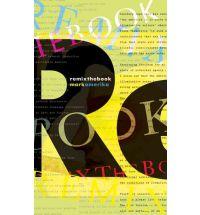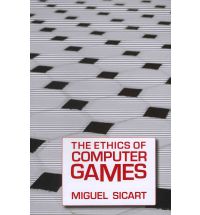Voici quelques-uns des nouveaux titres disponibles pour la consultation et l'emprunt au Laboratoire NT2.
Amerika, Mark (2011) Remix, the Book. Minneapolis: University of Minnesota Press, 313 p.
Digital technology has transformed contemporary culture. New social media, hyperlinks, and cut-and-paste techniques have changed the way we write. E-books, which allow us to carry entire libraries with us, are bringing new browsing and reading habits. Digital editing and other on-the-fly postproduction processes have altered how we make music, films, and visual art. A key rhetorical trope employed in all aspects of digital media is the remix, the creation of innovative new works of visual, literary, and performance art through the mashup. In remixthebook, Mark Amerika explores the mashup as a defining cultural activity in the digital age.
Source: http://www.gleebooks.com.au/default.asp?p=Remix-the-Book-Mark-Amerika-9780816676156
Bosma, Josephine (2011) Nettitudes: Let's Talk About Art. Rotterdam: NAi Publishers, 272 p.
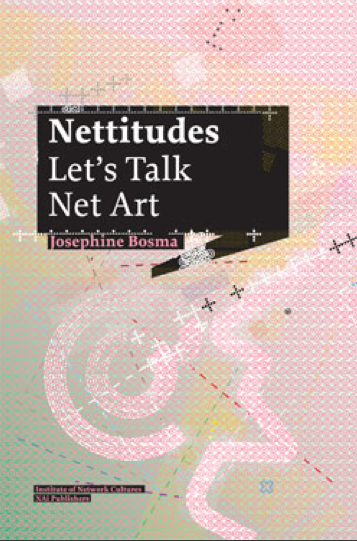
Never the darling of the media art institutions and ignored by many curators and critics since its emergence, net art still persists as a ‘non-movement’, residing in the cracks of contemporary media culture. Nettitudes provides an analytical foundation and an insider’s view on net art’s many expressions as it grapples with the aesthetic, conceptual and social issues of our times.Josephine Bosma is an Amsterdam-based journalist and critic who has commented on the fields of art and new media since 1993. One of the first to probe into and engage with the domain of net art, her pioneering work is published internationally in books, periodicals and catalogues.
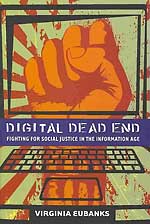
The idea that technology will pave the road to prosperity has been promoted through both boom and bust. Today we are told that universal broadband access, high-tech jobs, and cutting-edge science will pull us out of our current economic downturn and move us toward social and economic equality. In Digital Dead End, Virginia Eubanks argues that to believe this is to engage in a kind of magical thinking: a technological utopia will come about simply because we want it to. This vision of the miraculous power of high-tech development is driven by flawed assumptions about race, class, and gender. The realities of the information age are more complicated, particularly for poor and working-class women and families.
Source: http://mitpress.mit.edu/catalog/item/default.asp?ttype=2&tid=12453
Lunenfeld, Peter (2011) The Secret War Between Downloading & Uploading. Cambridge: MIT Press, 219 p.
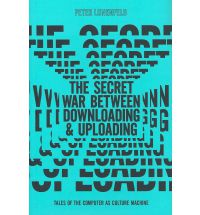
In The Secret War Between Downloading and Uploading, Lunenfeld makes his case for using digital technologies to shift us from a consumption to a production model. He describes television as "the high fructose corn syrup of the imagination" and worries that it can cause "cultural diabetes"; prescribes mindful downloading, meaningful uploading, and "info-triage" as cures; and offers tips for crafting "bespoke futures" in what he terms the era of "Web n.0" (interconnectivity to the nth power). He also offers a stand-alone genealogy of digital visionaries, distilling a history of the culture machine that runs from the Patriarchs (Vannevar Bush's WWII generation) to the Hustlers (Bill Gates and Steve Jobs) to the Searchers (Larry Page and Sergey Brin of Google fame). After half a century of television-conditioned consumption/downloading, Lunenfeld tells us, we now find ourselves with a vast new infrastructure for uploading. We simply need to find the will to make the best of it.
Nunes, Mark (2010) Error: Glitch, Noise and Jam in New Media. New York: Continuum Press, 270 p.
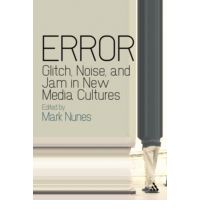
Divided into three sections, Error brings together established critics and emerging voices to offer a significant contribution to the field of new media studies. In the first section, “Hack,” contributors explore the ways in which errors, glitches, and failure provide opportunities for critical and aesthetic intervention within new media practices. In the second section, “Game,” they examine how errors allow for intentional and accidental co-opting of rules and protocols toward unintended ends. The final section, “Jam,” considers the role of error as both an inherent “counterstrategy” and a mode of tactical resistance within a network society.By offering a timely and novel exploration into the ways in which error and noise “slip through” in systems dominated by principles of efficiency and control, this collection provides a unique take on the ways in which information theory and new media technologies inform cultural practice.
Source: http://mitpress.mit.edu/catalog/item/default.asp?ttype=2&tid=11758

